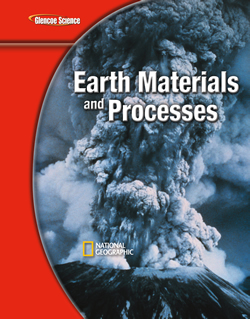1 A) the belief that Earth's crust and upper mantle is broken into sections B) the belief that continents have moved slowly apart to their current locations on Earth C) the belief that hot, less dense material is forced up through Earth's crust through mid-ocean ridges D) the belief that Earth is broken into sections that fit together into one sphere 2 A) the plates that make up the crust and the upper part of the mantle B) large, flat stones sitting on top of malleable magma C) the plates that make up the crust D) the upper part of the mantle 3 A) They only can move toward each other. B) They only converge or diverge. C) They only collide or slide along each other. D) They can collide, pull apart, or slide against each other. 4 A) move away from each other B) converge C) slide along each other D) move toward each other 5 A) It is too dense and is sinking into Earth. B) because new crust is being added to the other edge of the boundary C) Gravity is pulling it down. D) The other edge of the boundary is being pulled into Earth's core. 6 A) It goes over the other plate. B) It goes under the other plate. C) It combines with the other rock. D) It disappears from Earth. 7 A) No, earthquakes always occur when two continental plates collide. B) Yes, subduction always occurs when continental plates collide. C) No, usually no subduction occurs when continental plates collide. D) Yes, subduction always occurs when oceanic plates collide. 8 A) A transform boundary is when two plates pull away from each other. B) A transform boundary is when two plates move toward each other. C) A transform boundary is when two plates collide. D) A transform boundary is when two plates slide past one another. 9 A) convection currents B) gravity slab pull C) the movement of the planets D) the Sun's gravity 10 A) forms mountains B) all of the above C) forms ocean basins D) causes volcanoes 11 A) Rift valley formation has nothing to do with normal faults. B) Rift valleys sometimes occur near normal faults, but their formation is not related to these faults. C) Normal faults occur in the northern hemisphere, but rift valleys only occur in the southern hemisphere. D) Rift valleys are formed from normal faults. 12 A) divergent boundaries B) erosion C) compressional forces D) reversals of Earth's magnetic field 13 A) The less dense oceanic plate slides under the denser continental plate. B) The denser oceanic plate slides under the less dense continental plate. C) The denser oceanic plate slides on top of the less dense continental plate. D) The less dense oceanic plate slides past the denser continental plate. 14 A) a boundary where rocks move in the same directions at the same rate B) a boundary where rocks on the same side of the fault move in the same direction, but at different rates C) a boundary where rocks in the fault never move D) a boundary where rocks on opposite sides of the fault move in opposite or the same directions at different rates





